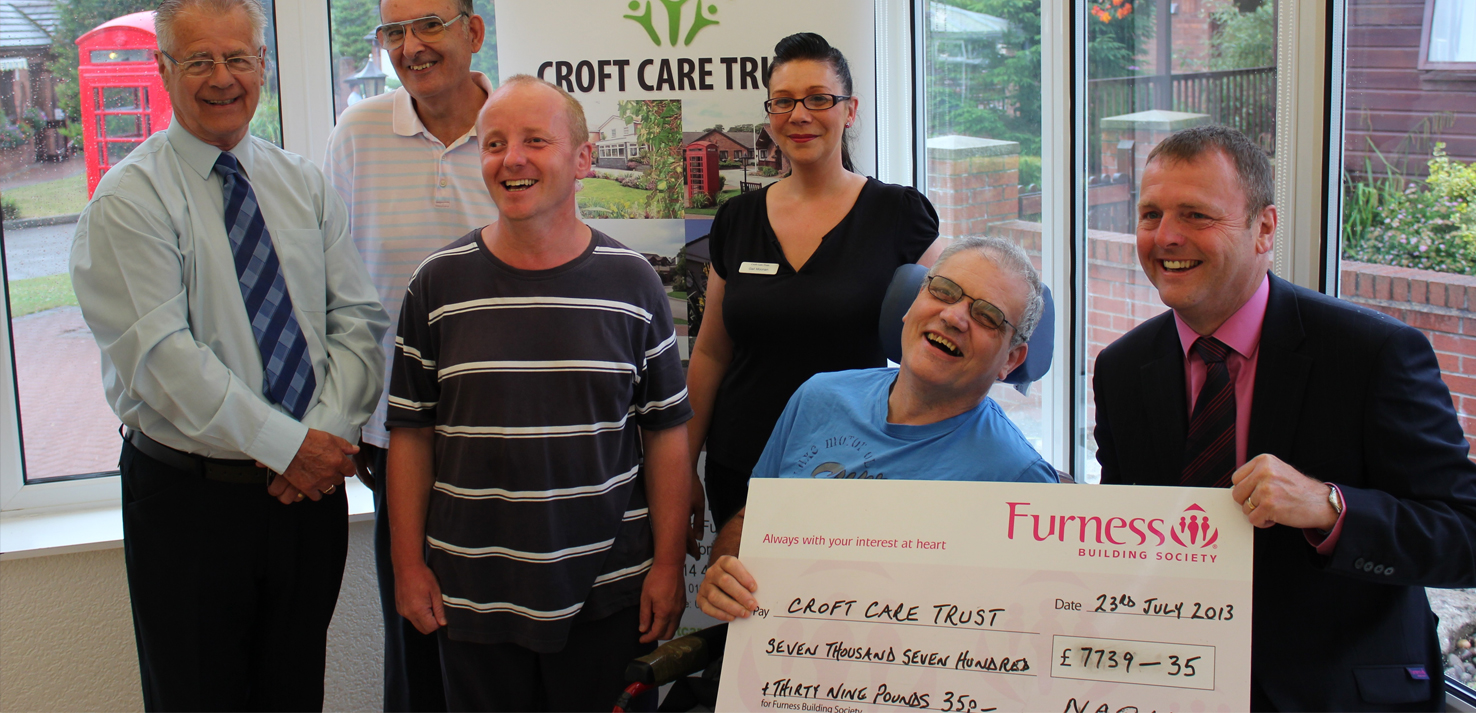Category: county
Funding available for community projects supporting architectural merit in Cumbria
Community projects of architectural merit in Cumbria are being encouraged to apply for financial support from a fund set up in memory of a much-love father.
The Geoffrey Blake Architectural Heritage Fund, managed by Cumbria Community Foundation, was set up by a daughter in loving memory of her father, who had a long-standing interest in historical architecture.
Community projects run by voluntary or charitable groups that support architectural merit and enhance people’s experience and understanding of the built environment are welcome to apply.
Projects must have full access to the public and have a clear benefit to the community.
The Foundation is eager to hear from projects that include the renovation of community features and landmarks, e.g. wells, crosses and memorials, the renovation of features of public buildings or the creation of new work including sculptures and other built features.
The first grant was awarded to Fitz Park Charitable Trust for the refurbishment of the exterior of PUPS Shelter in Keswick.
The shelter was built in 1939 by the Pushing Young People’’s Society (PUPS). Their aim was to provide activities and engagement for young people by carrying out charitable work and raising money to build the shelter in Fitz Park near to the War Memorial.
A spokesperson for the Fitz Park Charitable Trust said:“Fitz Park Trust is grateful for the support of Cumbria Community Foundation as it will ensure that the shelter is restored as close to the original in design and purpose as possible.
“The grant will have a huge benefit in restoring this heritage asset in Keswick. It will take the shelter from a run-down structure, which is now looking very tired, and improve the overall street scene in an area, making this area a more attractive place to encourage people to meet up as well as place for quiet reflection.”
Since 1999, the Foundation has been bringing people who love Cumbria together to make the county stronger, so Cumbria can thrive and meet the challenges communities face and achieve their full potential.
Annalee Holliday, Grants & Programmes Officer at Cumbria Community Foundation, said: “This fund provides valuable funds for projects of architectural merit in Cumbria. It is important that people can experience local heritage and it’s great that we have a fund that supports the renovation of community features and landmarks.”
For more information or to apply visit, http://www.cumbriafoundation.org or call Annalee Holliday, Senior Grants Officer on 01900 820827 or email Annalee@cumbriafoundation.org
Transforming communities
Hellrigg Windfarm, operated by RWE Renewables is helping to transform its local communities through the Hellrigg Wind Farm Community Benefit Fund.
Solway Community School Bike Club based in Solway Community School, received £1,323 to set up. The club aims to get students on their bikes and out into the countryside to improve fitness and wellbeing as well as helping with team building and leadership skills.
 Andrew Callaway, a teacher at the school, said: “The money was used to buy tools and spare parts to help the students learn how to maintain their bikes and ensure they are safe when we go out on rides. Training has also be given on how to safely lead group rides on the roads. The students are thrilled that we have been awarded this money and making this dream into a reality.”
Andrew Callaway, a teacher at the school, said: “The money was used to buy tools and spare parts to help the students learn how to maintain their bikes and ensure they are safe when we go out on rides. Training has also be given on how to safely lead group rides on the roads. The students are thrilled that we have been awarded this money and making this dream into a reality.”Based in Mawbray village, The Lowther Arms closed in December 2018. In May that year, Holme St Cuthbert’s parish council applied for the pub to be listed as an Asset of Community Value, which allowed the newly formed group to bid and gave six months breathing space to consider all the options including a community buy-out.
The grant from Hellrigg Wind Farm Community Benefit Fund has covered volunteer expenses, such as travel costs, meeting room and stationary, so that members of the group can progress with the process.
Chris Atkinson, Chairman, said “We’ve lost just about everything else in the parish, including the shop, post office, and most of our bus services.
“When we realised there was overwhelming support to buy the pub, we immediately began to organise ourselves. A local survey showed that most people want to save the heart of the village – a traditional pub serving traditional food, but with extra facilities like a small shop, meeting place, library, café and courier collection point.”
The group is supported by the Plunket Foundation’s More than a Pub initiative, funded by Power to Change with access to specialist business support.

The church has undergone a number of improvements over the past couple of years, including new windows and doors and redecoration.
This grant from Hellrigg Wind Farm Community Benefit Fund supported the renovation of the flooring in the main hall. Many of the users of the all are over 80 years of age and this has meant that the floor is now safe to walk on and without hazards.
The new floor is enjoyed by cubs, sewing classes, pensioners clubs, craft classes, yoga and over 30 people at its free lunches. They also hold evening dinner and entertainment.
Originally set up by Inspira, CYA started delivering the project in 2017 when Inspira pulled out. Running in collaboration with other youth organisations in Allerdale, it has had an appreciable impact on anti-social behaviour rates across the borough. It works in partnership North Allerdale Development Trust, Wigton Youth Station, Aspatria Dreamscheme, Castle Hill Trust, GLL, Soundwave and South Workington Youth Partnership.
Each organisation offers different youth-led activities in venues across the borough on a Friday night. This grant from the Hellrigg Wind Farm Community Benefit Fund has supported young people aged between 11 and 19 come together to enjoy a wide range of activities such as team games, quiz nights, craft sessions and cookery workshops.
Cath Clarke, Chief Officer of Cumbria Youth Alliance, said: “Access to positive activities really assists with ensuring young people make a successful transition into adulthood. They become more engaged and we notice marked improvements in their behaviour. Many young people started on the programme as beneficiaries and have now moved into volunteering positions, helping more young people to benefit in the communities.
“Local police have remarked to the clubs what a difference this project makes to young people who often have nowhere else to go. It has led to reduction in petty and persistent offending in some of the most disadvantaged communities in West Cumbria.”
Local communities benefit from Westmorland family generosity
Over the past ten years, community groups across Eden and South Lakeland have benefited from more than a quarter of a million pounds thanks to the generosity of a locally owned family business.
Westmorland Limited, a second-generation family business, which started in 1972 when the Dunning Family opened Tebay Services in Cumbria, set up a charitable fund in 2010 so that people working for company could access funding for community projects, which they were personally involved in.
The fund is managed by Cumbria Community Foundation and in that time, the Westmorland Family Community Fund has awarded 47 charitable groups grants of between £250 and £24,536. Each year, the Foundation receives a variety of grant applications and is able to support organisations such as Growing Well and The Oaklea Trust.
Growing Well, near Kendal, received £14,000 to support its mental health activities at Low Sizergh Barn. The charity provides a safe, supportive working environment to nurture mental health recovery on two hectares of land. The on-farm Occupational Therapy team provide daily support to volunteers and run life skills courses on managing mental health and returning to work or education.

Growing Well Chief Executive, Mary Smith, said: “We are extremely grateful for Westmorland’s grant, which has helped 100 people recover from mental ill health over the past year – and crucially has helped us keep on growing through lockdown due to the closure of the site from March to June.
“Our volunteers are now back working on a farm abundant with summer produce, and it’s thanks to funders like Westmorland Ltd that we were able to maintain our farming operation through these difficult times and fulfil our commitment to our Crop Share customers, so they were able to receive their weekly bags of fresh, organic vegetables throughout lockdown.”
The Westmorland Family Community Fund helps projects which support older adults, children and young people, groups who manage village facilities and groups operating or providing services in the travel to work area for Westmorland Limited; especially the communities of Tebay, Orton, Shap, Penrith, Kirkby Stephen, Stainton and Appleby.
The Appleby Hub, run by The Oaklea Trust, can continue to offer a range of community activities thanks to a grant of £6,290 from the Westmorland Family Community Fund.
People affected with mental health issues, those with dementia, and young people will benefit as the funding contributed to three community projects: A Safe Place support group for those who are struggling with their mental health, My Smart Music for those with dementia and their carers, and a youth group for young people aged 11-18 years.
Sue Green said: “Cumbria Community Foundation and grants from its fund holders have been invaluable by enabling organisations like us to support other smaller organisations that lack the governance structures that are needed. Oaklea’s aim to support stronger communities has been enhanced by the Foundation’s support. Appleby Hub has experienced a significant hit due to the pandemic lockdown, but we are looking to rebuild and support people that have been affected.”
Ellen Clements, Senior Grants & Donor Services Officer at Cumbria Community Foundation, said: “We are proud to manage the funds for Westmorland Limited as they are vital in supporting some of our most rural communities. It gives community groups a real opportunity to improve the lives of people and places where they live.”
To apply visit www.cumbriafoundation.org or for more information contact Ellen Clements on 01900 825760 or email ellen@cumbriafoundation.org
Communities across Cumbria receive charitable funding
Grants totalling £393,500 have been awarded to community groups across Cumbria.
A total of 58 charitable organisations received a share of the funds at Cumbria Community Foundation’s recent grants panel.
The money will support a wide range of projects across the county such as improving community and sports facilities, offer additional youth provision, support those at risk of homelessness and give help to those with addiction issues.
17 people also received financial support towards educational and training related costs, including support to one young person’s participation of the World Challenge Expedition in Borneo.
The money came from funds administered by Cumbria Community Foundation, including those set up by Cumberland Building Society, Shepley Group and Thomas Graham & Sons Ltd.
Copeland Age and Advice Service (CAAS) CIC received £30,000 over three years from the Roselands Trust Fund and the Cumbria Fund to continue supporting older people in the local area.
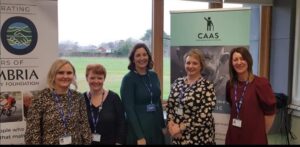
“We are very excited about what the future holds for CAAS and with support of our funders, we will ensure that Copeland Age and Advice Service goes from strength to strength.”

It runs a drop-in centre on Fisher Street which has remained open every day during the coronavirus outbreak and has also recently opened an 11-bed supported accommodation unit which is already nearing full occupation.
Iain Mcnee, Project and Outreach worker, said: “We provide assistance and support within our drop in service and our newly opened Supported Housing Accommodation. Our goal is to inspire young people with the knowledge and confidence to live independently and make a positive contribution to our local community and beyond.”
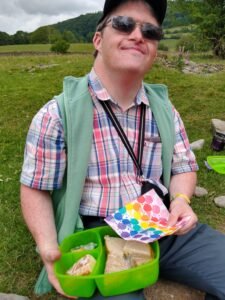
Audrey Steel, Creative Project Manager, said: “Our adapted programme in response to COVID-19, enables all our resident and community groups to stay engaged with us, whether this is through online resources, video meetings, or as with the elderly group, Powsowdie, a box delivered every month containing activities, resources and freshly prepared food, all to a theme, to gather memories and responses. Powsowdie is normally held at the Mill and is a reminiscence project. It is currently going out as a ‘boxed’ offering to isolated elderly or disabled people in the area.
One older lady said; “When my box arrived I was wondering what I could eat for tea – and this was taken care of by the wonderful tea provided! As I blew the bubbles I found in the box, I was reminded of me and my sister blowing bubbles in the garden many years ago. Thank you for the sweets – I haven’t tasted sherbet in years!”
Kent Estuary Youth (KEY) works with young people in Arnside, Levens and Milnthorpe, and received £3,000 from the Cumbria Young People’s Fund to sustain and extend the range of youth work on offer.
Greg Tagney, Trustee, said: “We are truly grateful for the support from CCF which enables KEY to continue our work with the young people within the Kent Estuary area.
“We believe in young people having a strong voice in their activities and in how KEY develops its work. We run a number of youth activities; youth club, youth cafe, schools alternative curriculum support, projects such as Random Acts of Kindness, summer holiday activities, development programmes, intergenerational work and community projects in which the young people lead their own input with the support of our staff.”
Ellen Clements, Grants & Donor Services Officer at Cumbria Community Foundation, said: “There are many worthy organisations around the county that hold communities together and continue to support the needs of local people. We are ever grateful to the generosity of our fundholders to enable us to support these vital services, especially during times when local services are under pressure and struggling to meet local needs.”
For more information or to apply for a grant, visit www.cumbriafoundation.org or call a member of the grants team on 01900 825760.
Cumbrian charities tackle mental health issues triggered by COVID-19 pandemic
Charities in Cumbria have received funding to help reduce the number of suicides and self-harm incidences in the county.
The impact of COVID-19 can lead to increased fear, frustration, and anxiety, causing stress and depression. Lots of people are struggling with having to stay at home, and with lockdown being extended for another three weeks, the effect on people’s mental health could be staggering.
The North East and North Cumbria Mental Health Integrated Care Systems (ICS) provided additional funding to the Cumbria COVID-19 Response Fund, managed by Cumbria Community Foundation, to enhance the support available to people struggling with their mental health and wellbeing.
Five organisations have received a share of more than £40,000 to support the suicide and self-harm prevention agenda. The money will help all ages, including vulnerable young people with chaotic lifestyles, parents who are juggling home working and home schooling, employees who have been furloughed or made redundant, and people with learning disabilities who are self-isolating.
Katherine McGleenan, suicide prevention lead across north east and north Cumbria, said: “We want to do everything possible to help people manage their mental health and wellbeing during this incredibly difficult and stressful time. Maintaining good mental health and wellbeing are key to supporting people to stay safe and well through times of crisis like this. We are therefore delighted to be able to work with Cumbria Community Foundation to support projects that will help provide support for people who are perhaps feeling at the moment there is less support available. This is especially important for people in our communities who are more vulnerable and already are struggling.”
Among the recipients is Carlisle & Eden Mind. The charity received £10,000 to extend the MindLine service. Tara Quinn, Chief Executive Officer, said: “We are delighted to be awarded this funding, which will help continue our daytime MindLine service. We help over 2,000 people per year through MindLine and now, more than ever, we will aim to reach people who need a listening ear, those more at risk and those at risk of suicide. We are passionate about our services at Carlisle Eden Mind and this fundind will help us to continue delivery of an established and much needed helpline, throughout Cumbria.”
Evidence suggests that people with learning difficulties are at a higher risk of self-harm and self-injury. Carlisle Mencap has received reports of clients self-harming due to lockdown restrictions, and the charity received £6,556 to offer early-intervention support to help them and their families.
Sheila Gregory, Chief Executive, said: “We are very pleased to receive this funding which will really help to support people with learning disabilities and/or autism at this difficult time. Our staff are working hard to support our members through the crisis, but this can be a very challenging when we are limited in the amount of physical contact we have with people. The funds will enable us to give members and their families one to one support virtually or over the phone to alleviate their anxiety.”
With 24-hour rolling news and social media, it is impossible to get away from COVID-19. For children, it is especially hard as they are unable to meet with school friends and have less of a virtual network outside their families. If they are already in an abusive family, this can be exacerbated by the pandemic.
PAC, in Carlisle, provides counselling and therapy to youngsters who have acute needs brought on by childhood trauma, a family break up, physical, sexual or emotional abuse, or neglect. The charity received £10,000 to employ a therapist for an additional day a week over 12 months.
Other groups to receive support include People First Independent Advocacy who received £10,000 to provide a telephone and video counselling service, and £5,000 was awarded to Every Life Matters to get suicide prevention materials online and made widely available.
Cumbria has some of the highest rates of suicide, with one person per week taking their own life. The money awarded coincides with mental health awareness week, which runs between 18th and 24th May and encourages people to talk.
Annalee Holliday, Grants & Donor Services Officer at Cumbria Community Foundation, said: “The impact of COVID-19 is affecting not just people’s incomes but also their health. As well as practical support, it’s important that people have sufficient emotional support and reach out to their networks. We want to make sure that everyone has access to mental health support and guidance and to let people know that there are many charitable organisations across Cumbria ready to offer a listening ear, while reducing pressure on the NHS.”
Local family donates £300,000 to help charities battle against COVID crisis
A family from Cumbria has given charitable groups a lifeline as they battle to support people amidst the coronavirus lockdown.
Fourteen charities from Cumbria and North Lancashire have received a share of £310,000 in funding to help them respond to the challenge of coronavirus.
The donation was made to Cumbria Community Foundation who then distributed the money to groups providing support such as food delivery, telephone befriending, counselling and benefits advice. The money will also help charities to co-ordinate their response and benefit community groups that are at risk of collapse because of the crisis.
As the pandemic continues, so do the needs. People whose livelihoods are falling away are being forced to turn to food banks and to apply for Universal Credit for the first time. Citizen’s Advice are already seeing a significant increase in people seeking their help for multiple issues and received funding to help them deal with the unprecedented demand.
Andy Auld, Chief Executive of Citizens Advice Carlisle and Eden, said: “People contacting us often need to address multiple issues at once – getting food vouchers, applying for benefits, and preventing eviction and reorganising debt repayments longer term.
“The crisis is disproportionately affecting those on lower incomes – people working in service industries, those on zero-hour contracts are among the first to be dismissed or furloughed. Many working people are already on low incomes and are struggling with any further reduction. We are particularly concerned about the links between the lockdown, poverty and mental health problems – these can lead on to difficulties with debt, housing etc. Part of our work is to try to help break this cycle.”
Many charities are facing a massive cut in income but feel obliged to stay operational and to carry on supporting vulnerable people far beyond when a pure business decision would mandate closure.
“At Age UK South Lakeland, we have taken the decision to continue to deliver as full a service as possible and have remained open throughout this difficult period. This decision was not easy because all our shops have had to close at this time, significantly reducing our income. We should be under no illusion that the level of help required will not end with any relaxation of the current restrictions and many will require support well beyond the lifting of social isolation measures. However, we are here and ready to provide support and deliver the services needed. The funding received will help us to do that,” said Chief Officer, Hugh Tomlinson.
Other groups benefiting from funding include Hospice at Home Carlisle & North Lakeland and Hospice at Home West Cumbria, and St Mary’s Hospice in Ulverston and St John’s Hospice in Lancaster to care for patients at the end stages of life in their homes and provide help and support to their families.
The anonymous family said: “We’re grateful to Cumbria Community Foundation for facilitating this, based on their knowledge and experience. We appreciate their help and expertise in enabling us to provide much-needed funds to ensure people across Cumbria and North Lancashire continue to receive the support they so desperately need.”
Annalee Holliday, Grants & Donor Services Officer at Cumbria Community Foundation, said: “The pandemic is making life more difficult than ever before for vulnerable people and the charities they rely upon are struggling to survive and deliver the services that are a lifeline across the region.
“Many of the charities, community and voluntary groups we support currently have no fundraising capability. They do brilliant work helping our most vulnerable people and communities but are unable to ask the wider world for donations, so we provide the easy way to donate to them, with all the due diligence and local knowledge needed.
“We are extremely grateful to the family for their generosity and supporting local charities that are providing a lifeline for those in desperate need during the pandemic.”
Cumbria COVID-19 Response Fund awards £67,680 to support the community.
Charities battling the coronavirus pandemic have received a welcome boost this week.
Another £67,680 was awarded from the Cumbria COVID-19 Response Fund to support projects tackling social isolation, offering advice and guidance and those affected by bereavement.
Over the past month, £577,450 has been awarded from various funds within the Foundation, benefiting 80 local community and voluntary organisations, including the Cumbria COVID-19 Response Fund, which was set up to support the increased demand that Cumbrian charities and voluntary groups are facing in the wake of COVID-19 and its related closures.
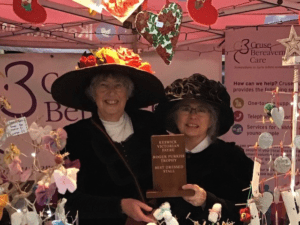
Amy Green, Operations Manager, Cruse Cumbria, said: “We are anticipating a huge increase in demand due to COVID-19 and this funding will support us in meeting that demand. Our volunteers provide much needed specialist bereavement support, which is important now more than ever. We are committed to making sure all bereaved people across Cumbria can continue to access support.”
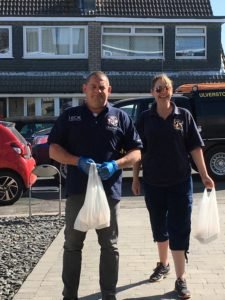
Alston Moor Emergency Response Group have set up a local support service run by volunteers for residents in the rural area of Alston Moor. The group received £4,400 to offer services such as prescription delivery to patients who are in the ‘high risk group’. The group have also set up a local helpline, phone buddying, a food delivery service working with local businesses and a newsletter to keep local residents informed.
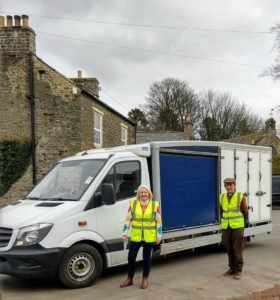
Many people will not be able to attend their usual self-help meetings due to the current restrictions. Cumbria Alcohol and Drug Advisory Service (Cadas) received £11,000 to set up a new helpline and campaign to help people address a broader range of addictive and dependent behaviours, including gambling, social media use as well as substances.
Providing advice and information when local residents are needing it most is Citizens Advice Allerdale. It received £10,000 to provide advice, information and support via telephone and email. It is offering support to people needing advice on benefits and housing, household debts, employment advice, financial support for the self-employed and small businesses, as well as supporting people in a domestic abuse situation and advice on relationship breakdowns.
Andy Beeforth, Chief Executive of Cumbria Community Foundation, said: “The people of Cumbria have responded amazingly to the COVID-19 outbreak. We’ve had some of the highest recorded cases in the UK and it has been a worrying time for everyone.
“Tens of thousands of older people and people with medical conditions have been locked down in their homes for weeks. Funding projects that are adapting and supporting the most vulnerable in our communities is exactly why we set the Fund up. We can only support these groups thanks to the generosity of our donors. As the demand for our grants grow, we will soon expend the funds we hold. That is why we have decided to raise the fundraising target to £3 million and ask everyone who can give to the Fund, to please do so.”
Fundraising target to help the helpers raised to £3 Million
Cumbria Community Foundation launched the Cumbria COVID-19 Response Fund four weeks ago with an initial target of £1million to support community and voluntary organisations that are helping to feed and protect elderly and vulnerable Cumbrians as part of the county’s co-ordinated response to the pandemic.
In that time, more than half a million pounds has already been given out by the Cumbria COVID-19 Response Fund and the charity is now raising the target to £3 million.
The Cumbria COVID-19 Response Fund has helped to provide much needed food and medicine to isolated old and vulnerable people sheltering in their homes. It has helped families in poverty and those in temporary accommodation, women affected by domestic violence, and supported isolated and vulnerable young people. Grants have also been given to help charities that have seen a rise in demand for their services, such as mental health provision and carers organisations.
Throughout the county, thousands of volunteers have come forward to create new self-help groups, alongside support from many of the existing 6,000 charitable groups across Cumbria that are stepping up and working to reduce pressures on the NHS. Teamwork among public, private and charitable organisations means Cumbria now has a call centre and a network of hubs coordinating volunteers and delivery of food and medicines.
Andy Beeforth OBE, Chief Executive of the Community Foundation said: “Cumbria has been at the forefront of the COVID-19 pandemic with some of the highest recorded incidences of the disease. Our doctors, nurses, health workers and all key workers have all been magnificent and we thank them.
“As we enter a further three weeks of lockdown, many people are unable to work. Families are applying for Universal Credit for the first time and many businesses have been without income for weeks.
“The need is great and growing. Our charities are at the forefront of supporting people at this desperate time. The money we’ve given out so far has kept people safe but what we have raised will soon run out. Some of our most important charities are themselves facing financial problems and without support from the COVID-19 Fund they may have to close. “
Assistant Chief Constable, Andy Slattery, who chairs the Cumbria Covid-19 Strategic Coordination group said: “I have seen the way local charities and community volunteers have worked together in support of our most vulnerable people. I understand the significant impact the virus is having.
“It is vital that we have funds available for local charities and voluntary organisations to support people in urgent need.”
Colin Cox, Director Public Health, said: “Supporting older and vulnerable people to self-isolate is particularly challenging for community groups, as the situation is exacerbated by the remote, rural nature of our county. In addition, there are proportionally more people in the vulnerable self-isolating category as the county is characterised by a ‘super-ageing’ population, particularly in the more rural areas.
“The need for practical support will last for at least three months and may well be extended beyond that, such as the delivery of food and essential items to those who are self-isolating. There is also a need for other types of support, such as befriending, emotional wellbeing, mental health, bereavement and counselling, which will increase and be required over a longer period.”
One in eight households in Cumbria have an income of less than £10,000 a year. People locked in poverty are more likely to be in poor health, disabled, and to be caring for others. In addition, people stuck in poverty are more likely to experience anxiety, depression and other mental health difficulties.
The implications of COVID-19 also mean that many more people struggling to keep their heads above water could be swept into poverty as a result. The virus has forced many people to look for help in areas that they may have thought they’d never need, and local Citizens Advice have seen an unprecedented demand for their services.
Andy Auld, Chief Executive of Citizens Advice Carlisle and Eden, said: “Since the Coronavirus crisis started, we have seen an increase locally in the number of people seeking our help – particularly on the issues of unemployment, paying bills, furloughing and access to food. Residents contacting us often need to address multiple issues at once – getting food vouchers, applying for benefits, and preventing eviction and reorganising debt repayments longer term.
“The crisis is disproportionately affecting those on lower incomes – people working in service industries, those on zero-hour contracts are amongst the first to be dismissed or furloughed. Many working people are already on low incomes and will struggle with any further reduction. This will likely result in increased poverty and further ill-health. We are particularly concerned about the links between the lockdown, poverty and mental health problems – these can lead on to difficulties with debt, housing etc. Part of our work is to try to help break this cycle.”
Older people are particularly vulnerable to Coronavirus. Along with having isolation and mobility challenges, older people often have a weaker immune system and are also more likely to have conditions such as heart disease, lung disease, diabetes or kidney disease, which weaken their body’s ability to fight infectious diseases.
In South Lakeland, over a quarter of residents are aged over 65. The Fund has helped organisations such as Age UK South Lakeland to offer a variety of emergency services including telephone shopping and befriending, and a prescription collection and hospital transport service. Hugh Tomlinson, Chief Officer, said: With the extension of the current restrictions, we expect the need for services such as the befriending scheme to continue to rise. We should be under no illusion that the level of help required by these vulnerable groups will not end with any relaxation of the current restrictions and many will require support well beyond the lifting of social isolation measures.
At Age UK South Lakeland, we have taken the decision to continue to deliver as full a service as possible and have remained open throughout this difficult period. This decision was not easy because all our shops have had to close at this time, significantly reducing our income. However, we are here and ready to provide that support and deliver the services needed. The funding received from Cumbria Community Foundation will help us to do that.”
Much more needs to be done to support families with children in this time of national crisis. As unemployment rises over the coming weeks and months, many more families will require welfare support to get by. 12,000 children across Cumbria live in poverty and in Barrow, it’s one in three. Free school meals make a huge difference to those on low income, but we know there have been issues with children receiving the vouchers provided to replace the meals they would receive at school. Many more families will need to turn to food banks, which have also been hit by shortages and many are running low on essentials.
Love Barrow Families CIC works with families who live in the most deprived wards in the town. Many have relationship difficulties and mental health issues, which are exacerbated by the virus. The charity received £4,000 to enable staff and volunteers to work remotely and to cover costs associated with the food and prescription delivery service.
Trina Robson, Director at Love Barrow Families, said: “This crisis has taken away the place where our families came together, and we are doing our best to continue to reach out to everyone and to put people in touch with each other. We know that it is relationships and love that count, and we are finding as many ways as possible to provide this. One way is through our volunteers providing a home cooked meal for all the families who need it every week and an activity or challenge that families can complete. We are using various means of having fun and staying in touch remotely and the funding will help us to do this. For our families this is a lifeline. It means that they can access the right support, be that psychological or practical, from the right place at the right moment to stay well and keep going through this difficult time.”
For all these reasons, Cumbria Community Foundation is asking those people who can afford to donate, to please do so and help them meet the new fundraising target of £3 million for the Cumbria COVID-19 Response Fund. To make a donation and support local groups, please click here.
Businessman donates £100K to Cumbria COVID-19 Fund
A fund set up to support Cumbria’s charities and community groups during the COVID-19 crisis has received a welcome boost.
Since Cumbria Community Foundation launched the Cumbria COVID-19 Response Fund three weeks ago, the Fund has amassed more than £900,000 in donations.
A former Cumbrian, who now lives in Cornwall, has donated £100,000 to the Fund to help the Foundation provide additional funding to local groups supporting families.

“Now my parents have died, I very rarely get up to Cumbria, but even when living overseas, I liked hearing the snippets of news about the region and watching TV programmes about Cumbria. I often get a twinge of homesickness and have many fond memories of the countryside and people of my early years,” Mike said.
“I wanted to ‘do my bit’ to help to reduce the risks to some of the most vulnerable in society. I am making donations in Cumbria and Cornwall with a focus on alleviating difficulties faced by families with children in being able to afford the basics. I find myself in a privileged position where I can help, so I will. In fact, I think I should, and I am very happy to do so.”
Andy Beeforth, CEO at Cumbria Community Foundation said: “In three weeks, over 90 applications from charities and community groups have been received, requesting almost £750,000 between them. The need is great, and we can only support these groups thanks to our generous donors.
“Hundreds of people have donated so far and what this crisis has done is bring together a community. We continue to be inspired, but not surprised, by the generosity of people who care about Cumbria. The money that’s been donated is helping groups make an enormous difference in their communities, but we know that need is still growing and is likely to do so for some time.”
Charities helping Cumbrians overcome Coronavirus crisis
Following the launch of the Cumbria COVID-19 Response Fund last month, almost a quarter of a million pounds has already been awarded to support local community and voluntary organisations meeting the new needs and challenges created by the virus.
At a time when they have never been more needed, many charities and voluntary organisations are stepping up and responding in the crisis. More than 50 grants have been distributed and dozens more will be provided in the coming weeks.
Another £79,000 was distributed from the Cumbria COVID-19 Response Fund, set up by Cumbria Community Foundation this week, which is designed to help groups respond and sustain crucial activities as the pandemic continues.

Jo Birch, acting chief officer at Safety Net, said: “In these uncertain times we can reassure survivors that Safety Net is here to support them. The hidden epidemic of domestic and sexual abuse continues and grows during this COVID-19 pandemic. This funding will allow our vital work to continue and expand, ensuring a crucial lifeline for those who need support in Cumbria.”
In rural Cumbria, many households face long journeys to buy food and this is more difficult if families are self-isolating. Volunteers from Gisland Village Hall near Brampton are supporting the local response group, which formed to help those who are isolated during the pandemic. There are no shops in the village or bus route and many residents are older or work long hours on nearby farms.
£500 from the Cumbria COVID-19 Response Fund will help volunteers to provide food supplies in addition to local information via a twice-monthly newsletter. Janet Gordon, Chair, said: “The community of Gilsland is spread across the three parishes of Upper Denton, Waterhead and Thirlwall with the village hall at its heart. Some of the outlying properties are in very rural areas having no mobile phone signal and limited broadband, making communication a challenge. The funding we received will help support the community in many ways and the production of a newsletter is a vital asset especially for the elderly and vulnerable self-isolating in their own homes for up to three months.”
The number of people being forced to stay at home during the lockdown has raised fears that there will be more cases of domestic abuse, and that some victims will be either be too afraid to ask for help, or be uncertain if help is available at this time. West Cumbria Domestic Violence received £10,128 to offer a confidential telephone helpline with qualified therapist and trainers for those suffering from abuse. Project Manager, Victoria Pike, said: “While many victims and survivors of domestic abuse will rely on their family and friends, they also need a strong provision of formal services, from specialist refuges to counsellors.
“With the current lockdown measures that are in place, victims may not have accessible support from family, friends and other services they are used to; therefore, it is vital that there is a place for them to turn to. Early intervention or lack of early support can enable or prohibit an individual’s ability to break away from abuse. If the person does decide to talk, whether they have left an abusive relationship or just contemplating it, it is important to have someone to talk too, a friendly ear at the end of the phone to discuss the various options and help them make informed choices to keep themselves and their children as safe as possible. The grant is going to go a long way in providing immediate support to victims of domestic abuse in West Cumbria.”
Love Barrow Families CIC works with families who suffer from physical and mental health issues, relationship difficulties, drug and alcohol abuse, anti-social behaviour, domestic violence, unemployment and homelessness, all of which can affect emotional and mental wellbeing and is exacerbated by the virus. The charity received £4,000 to enable staff and volunteers to work remotely and to cover costs associated with the food and prescription delivery service.
Farmers in many parts of the county were already struggling after the wettest February since records began and are now facing the challenges of Coronavirus. Many farms run tourism enterprises that have been immediately impacted by restrictions but are also experiencing difficulties in sourcing supplies, disruption to markets, falling milk prices and concerns about what might happen to their livestock and businesses if they themselves become ill.

Chairman of the Farmer Network, Randal Raine, who farms at Outhwaite, said: “The Farm Labour Emergency Support Scheme will bring much needed reassurance to farmers like me, that in a worse- case scenario, the farm can remain operational and the welfare of animals maintained.”
For more information about the Fund and how to donate, click here.
For groups wanting to enquire about funding, click here.


